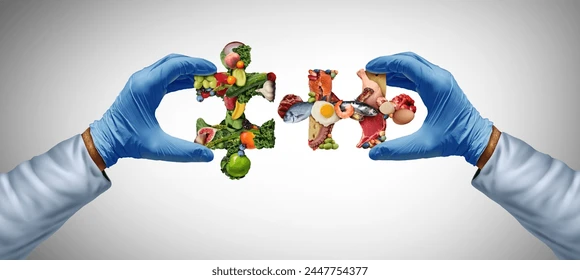In recent years, plant-based diets have gained significant traction for their health benefits, environmental impact, and ethical considerations. But transitioning to or maintaining a plant-based diet requires thoughtful planning to ensure balanced nutrition. Whether you’re a curious beginner or a seasoned vegan, this guide will help you thrive on a plant-based lifestyle.

1. What is a Plant-Based Diet?
A plant-based diet emphasizes foods primarily from plants, including vegetables, fruits, nuts, seeds, legumes, whole grains, and plant-based proteins. While some people choose to eliminate all animal products (vegan), others may include occasional animal-based foods (flexitarian or vegetarian).
2. Health Benefits of a Plant-Based Diet
Studies have shown that plant-based diets can offer several health benefits, including:
- Improved Heart Health: Lower cholesterol levels and reduced risk of heart disease.
- Weight Management: Higher fiber intake promotes satiety, which can support weight loss or maintenance.
- Reduced Risk of Chronic Diseases: Lower rates of type 2 diabetes and certain cancers.
- Better Gut Health: High-fiber foods support a healthy microbiome.

3. Essential Nutrients to Focus On
While plant-based diets are nutritious, some nutrients require special attention:
- Protein: Include a variety of plant-based sources like lentils, chickpeas, tofu, tempeh, seitan, quinoa, and nuts.
- Iron: Found in spinach, lentils, beans, fortified cereals, and pumpkin seeds. Pair with vitamin C-rich foods to enhance absorption.
- Calcium: Get calcium from fortified plant milks, tofu, kale, broccoli, and almonds.
- Vitamin B12: Since it’s primarily found in animal products, consider fortified foods or supplements.
- Omega-3 Fatty Acids: Include flaxseeds, chia seeds, hemp seeds, and walnuts.
4. Tips for a Balanced Plant-Based Diet
- Diversify Your Plate: Aim for a colorful variety of vegetables, fruits, and grains to cover a range of nutrients.
- Plan Ahead: Meal prep can help you stay on track and avoid unhealthy, processed options.
- Read Labels: Not all plant-based foods are healthy; some processed options can be high in sugar and sodium.
- Stay Hydrated: Fiber-rich diets require adequate water intake to support digestion.

5. Easy Plant-Based Meal Ideas
Here are some simple and delicious ideas to get started:
- Breakfast: Overnight oats with almond milk, chia seeds, and fresh berries.
- Lunch: Quinoa salad with chickpeas, roasted veggies, and tahini dressing.
- Dinner: Stir-fry with tofu, broccoli, bell peppers, and brown rice.
- Snack: Hummus with carrots and cucumber slices.
6. Overcoming Challenges
- Social Situations: Communicate your dietary preferences ahead of time. Bring a plant-based dish to share at gatherings.
- Dining Out: Research restaurants with vegan-friendly menus or ask for modifications.
- Cravings: Explore plant-based alternatives for your favorite comfort foods, like vegan cheese or plant-based burgers.
7. Environmental and Ethical Benefits
A plant-based diet not only benefits your health but also reduces your carbon footprint. Growing plants typically uses fewer resources than raising animals, contributing to less deforestation, water usage, and greenhouse gas emissions.
8. Getting Started
Transitioning to a plant-based diet doesn’t have to be overwhelming. Start small by incorporating one plant-based meal a day or participating in initiatives like “Meatless Mondays.” Gradually increase your plant-based meals as you become more comfortable.
Conclusion
A plant-based diet can be a rewarding lifestyle choice, offering numerous health benefits while contributing to a more sustainable world. By planning your meals thoughtfully and ensuring a diverse intake of nutrients, you can thrive on this diet and enjoy a variety of delicious, plant-based foods.
Are you ready to give plant-based nutrition a try? Start with one meal and see how easy and satisfying it can be!











